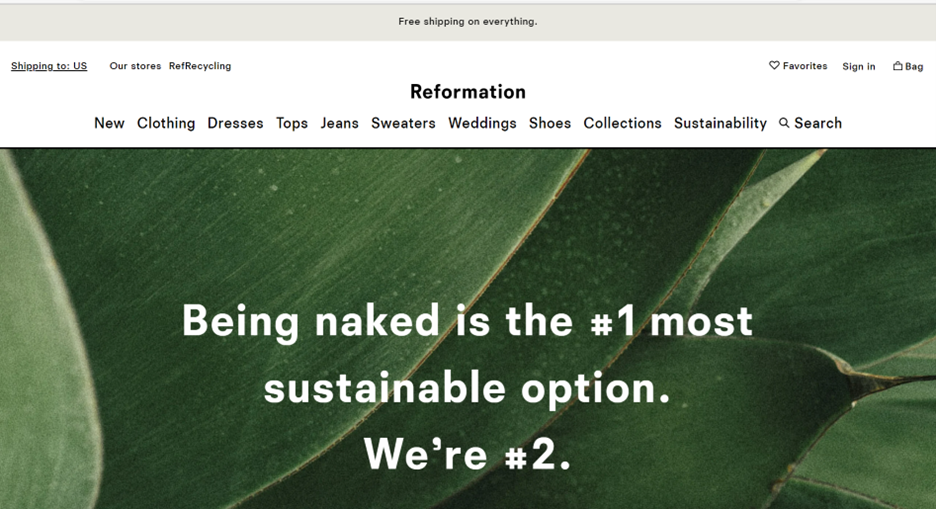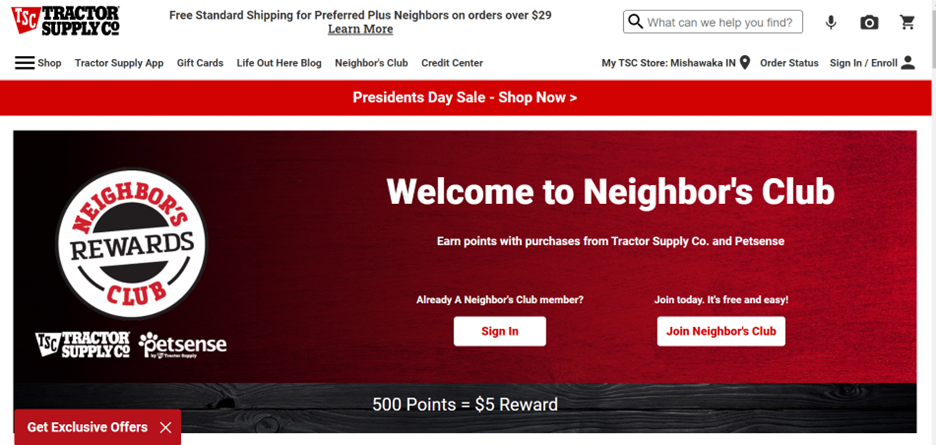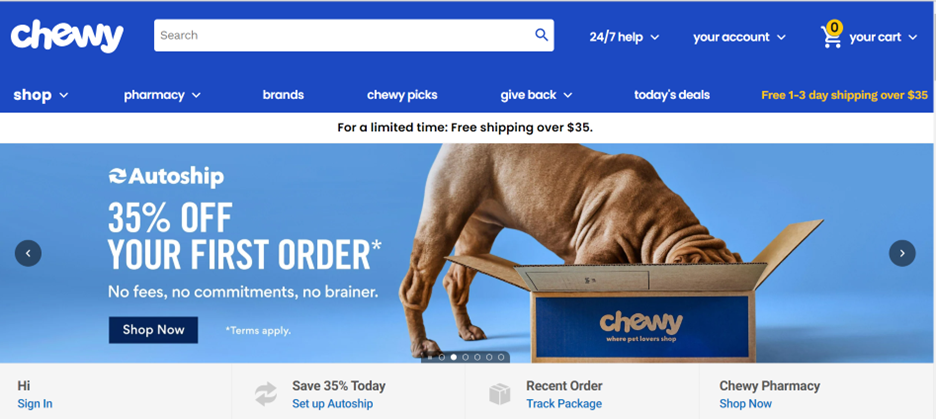In the last few weeks, I made two purchases online that I might regret.
Looking back, aside from the money spent, part of that regret comes from a lack of trust in the retailers. It’s been over 30 days and neither has delivered the goods. In fact, one hasn’t even sent an order confirmation and inquiries to that retailer go unanswered. And at this point in time, I wonder if they will ever arrive.
When I Googled the word trust, words like reliability, truth and strength of someone or something were all part of what surfaced. Making a purchase from an online retailer is about forging a relationship, and ideally those are built on trust.
We asked in our Digital Commerce and Bizrate Insights survey of 1,060 online shoppers in January 2023, “Which attribute or conditions are most likely to lead you to place an order on a retail website or app when shopping online?” One of the top four answers was trust in the brand, which 46% of survey respondents cited. This was behind formidable competition that included free shipping (69%), the right price (66%) and product selection (47%), putting it in important company.
One would also conclude that a prior purchase is a factor in the trust equation as well, with 43% acknowledging its role. A retailer’s loyalty program at 28% is also interesting, as I expect that if someone chooses to belong to such a program, they too would trust the brand.
I want to think out of the box about some of the intrinsic aspects of shopping online that foster trust. In showcasing examples, my goal is for retailers to evaluate how well the site experience they put forth is doing to engender trust, and to evaluate if any of the elements proposed might improve their trust with shoppers.
Satisfaction guaranteed
It’s important that shoppers have positive shopping experiences — 36% chose specific retailers over the holidays because of a previous good experience. Nothing is a bigger booster of trust than a product guarantee. And in the instance of Vuori, an athletic clothing and activewear apparel brand I recently discovered, they have also smartly adopted a customer favorite: free returns. Another Digital Commerce 360 and Bizrate Insights survey of 1,023 online shoppers in January 2023 found that free return shipping led 25% to purchase from a retailer. This is a winning combination.
Values
For once, it feels like there is a shift when it comes to values, and perhaps the younger generation is leading the charge. Regarding sustainability, hardly a day goes by when there is not a headline in the fashion world and beyond.

Vuori offers satisfaction guarantee and free returns shipping.
Many retailers, like allbirds, are providing examples of this. Allbirds introduced its first-ever Plant Leather shoes, which fit the bill. The merchant reinforces not choosing plastic. Sustainability is central to this brand’s value proposition, and its message begins with “Products Born From Partnership.” It adds to this in sharing that, “By offering a carefully curated product range fit for all seasons, we’re able to maintain a small, tight-knit supply chain.”

allbirds highlights sustainability, focusing on a shift from plastic materials.
While branding is serious business, it doesn’t mean retailers can’t bring a sense of humor to the table. Reformation does just that in its irreverent style, sharing, “We have big goals, like reducing more emissions than we make, making all our stuff recyclable, and a bunch more we’ll get into below.”
It is the vision of these companies that will propel us all forward. As the site loads, it indicates, “We’ll be Climate Positive by 2025.”

Reformation delivers on sustainability.
Service
Not surprisingly, service plays a critical role in both establishing trust as well as maintaining it over time. Once again, we surveyed online shoppers to see which types of interactions drove purchasing. With phone calls often leading to dead ends and not solving shopper issues in real-time, chat (with a human) has emerged as a desirable choice.
When I had an issue with a book I purchased, I chose email in hopes that the “paper trail” would be valuable. Additionally, I was able to easily include information in support of my case. I’m happy to report that the company responded and shared a personal story about being a one-man show and equipment failures. On a positive note, after four days’ turnaround time, he said my order was on its way.
Execution
As they say, talk is cheap. Certainly, online reviews have been instrumental in giving shoppers the confidence they need to make a purchase. But what really matters is execution, and not just in the short term. Abt embodies what it’s like to take care of the customer for 86 years. If you’ve done business with them, like I have for many years, you know it’s true. From in-store to in your house, their customers will experience Abt’s award-winning customer service.

abt highlights award-winning customer service.
Belonging is always a good feeling. For those shopping online, that means loyalty programs. Some would argue that Amazon built its business on the back of its Prime program.
Digital Commerce 360’s Top 1000 database reveals that 27.8% of these retailers have such a program. It is not just that a retailer offers such a program, but it’s about a particular kind of tone as can be seen in Tractor Supply’s Neighbors Rewards Club, where for every 500 points one receives a $5 reward.

Tractor Supply delivers loyalty program via Neighbor’s Rewards Club.
Chewy’s autoship is perfectly suited to the pet category, and that’s important in a category where much of what is sold is replenishment-driven. It has built its business on a “no fees, no commitment, no brainer” approach to selling. Shoppers can take advantage of the autoship programs risk-free, and Chewy will let the execution speak for itself.

Chewy’s Autoship is ideal for pet buyers.
Tools
Savvy retailers are incorporating profilers and quizzes into the shopping experience. These help guide shoppers to make the right decisions. Digital Commerce 360 Top 1000 database reports that 13.4% had interactive tools. Stitch Fix is one example. It walks you through a quick profiler that includes reasons to try Stitch Fix, weight, height, sizes in an array of garments, how sizes are working for you (too short, too long), along with a series of style selections from which one can choose. When deciding to try such a service, trust may not be immediate but instead may happen over time.
Retailers in the Digital Commerce 360 conversion survey of 73 retailers in January 2023 reported about what drives conversion. 21% of respondents said interactive product-match tools that educate and profile shoppers to make decisions are very important when it comes to improving conversion rates.

Stitch Fix profiles its customers for a personalized experience.
Price aware
When we asked in our conversion survey what kept shoppers from placing an order most in 2022, half said they didn’t place orders due to higher prices. Price’s role can’t be underestimated. Our post-holiday survey found that right after free shipping, the No. 2 reason shoppers will place an order is the right price.
Being in stock
Online shoppers will certainly be more confident if the products they desire are in stock. When we asked online shoppers what made them choose to shop with specific retailers over the holidays, 43% indicated it was because they had the products they wanted in stock. At the same time, when asked what improvements they would like to see from retailers in 2023 that would lead them to buy even more online, the top answer, along with faster delivery for 32%, was having more inventory in stock.
Trust is personal. Online retailers need to execute delivering exemplary service, with satisfaction guaranteed an optimal scenario. Brands have an opportunity to differentiate through values, a compelling on-site experience and confidence-building tools that effectively guide shoppers. Ensuring products are priced right and ample inventory is available fosters trust and retention that drives growth.
Sign up
Stay on top of the latest developments in the ecommerce industry. Sign up for a complimentary subscription to Digital Commerce 360 Retail News.
Follow us on LinkedIn, Twitter and Facebook. Be the first to know when Digital Commerce 360 publishes news content.
Favorite